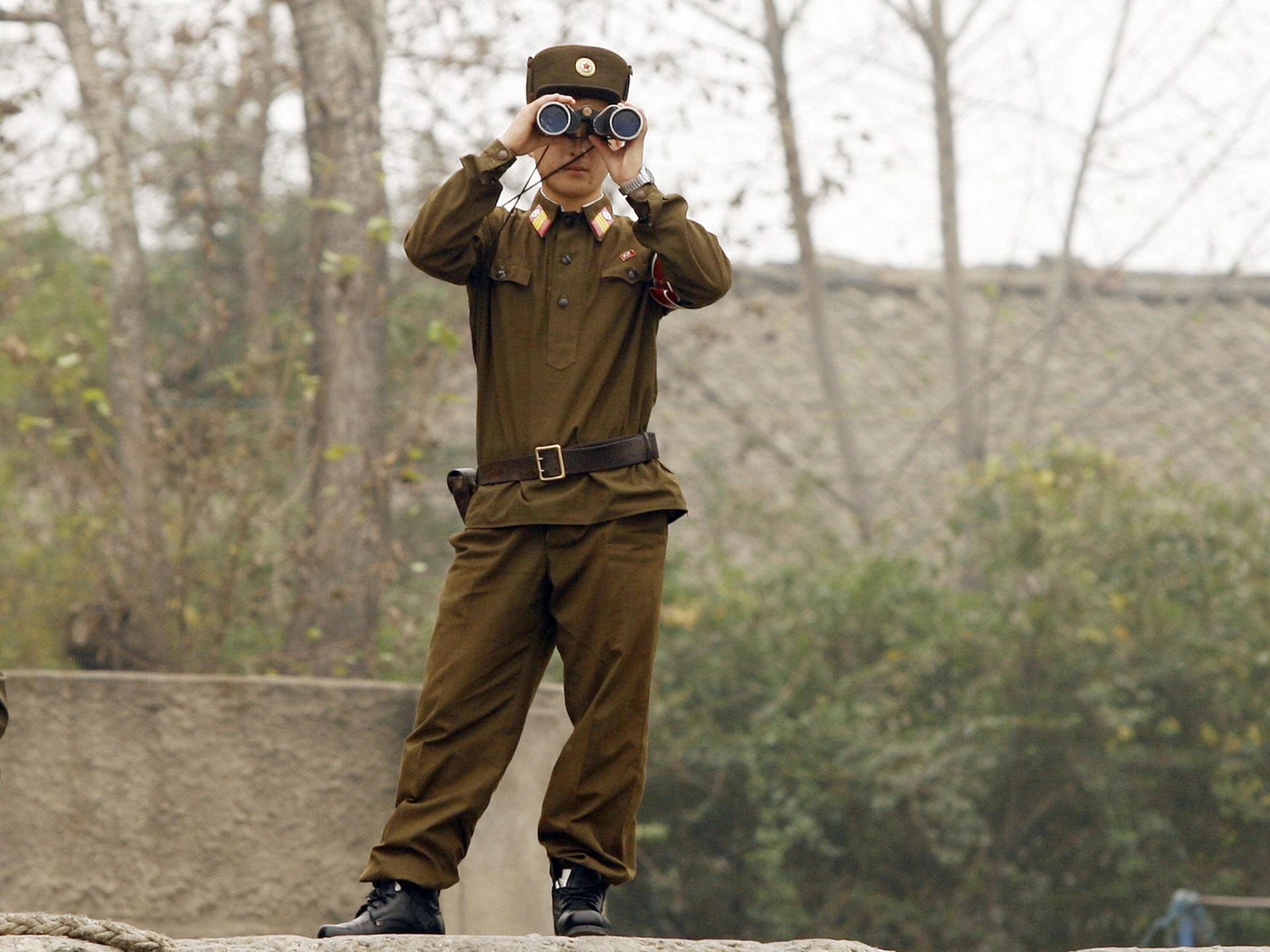A senior Ukrainian official confirmed on Monday the nation’s troop fired on North Korean soldiers stationed in Kursk, a border region of Russia that Ukraine counter-invaded in August.
The exchange is the first reported kinetic action between North Korea and Ukraine. European, South Korean, and American officials have for weeks warned of evidence that the communist North Korean regime had begun moving thousands of troops into Europe in anticipation of aiding the Russian invasion of Ukraine, potentially the result of dictator Kim Jong-un signing a mutual defense agreement with Russian strongman Vladimir Putin in June. Pyongyang has repeatedly denied any involvement against Ukraine, however, alleging that any such reports were Western propaganda.
The report of exchanges between Ukrainian and North Korean forces followed a record-setting test last week of North Korea’s latest model of intercontinental ballistic missile (ICBM), the “Hwasong-19,” and reports out of South Korea and Japan that the North Korean regime may be planning to imminently test a nuclear weapon for the first time since 2017. It also follows effusive complaints from Ukrainian President Volodymyr Zelensky that the European Union and the Pentagon have not taken the threat of a North Korean invasion seriously and their “zero” response would embolden more violence on the part of Russia and its allies.
“The first DPRK soldiers have already come under fire in the Kursk region,” Andrii Kovalenko, the head of the Center for Countering Disinformation at the National Security and Defense Council, announced on Monday in a post on the encrypted messaging application Telegram, the state outlet Ukrinform reported.
While Kovalenko independently confirmed the attack, Zelensky himself did not mention any North Korean activity in his daily update with staffers on Monday, according to Ukrinform. Zelensky has nonetheless repeatedly warned of the possibility of a world war given the involvement of the nuclear-capable North Korean military – and expressed frustration at the apparent lack of alarm in Washington and western Europe.
“Instead of providing the much-needed long-range capabilities, America is watching, Britain is watching, Germany is watching,” Zelensky complained on Friday. “Everyone is just waiting for the North Korean military to start targeting Ukrainians.”
“North Korean troops have not yet engaged in combat, but this is a matter of days, not months,” he said last week. “When deployed, they will be pushed forward, sustaining heavy losses, as Russia tries to minimize its own troop mobilization.”
“Putin is checking the reaction of the West … And I believe that after all these reactions, Putin will decide and increase the contingent … The reaction that is there today is nothing, it is zero,” Zelensky lamented in an interview with the South Korean outlet KBS.
The Ukrainian president also predicted that fighting Ukrainians will give North Korean troops elevated real-world experience that makes them a bigger threat to South Korea. North and South Korea have been at war since 1950, when the communist North invaded the South to trigger the Korean War. Active hostilities in the Korean War ended with an armistice agreement in 1953, but neither side signed a peace treaty or surrendered, meaning the war remains ongoing.
“The combat experience North Korea gains from supporting Russia will ultimately work against stability and peace in the Asian region,” Zelensky predicted. “We understand North Korea’s ambitions well, which is why we strongly support deeper relations with South Korea.”
The Pentagon predicted last week that North Korea would send 10,000 troops to Russia in “the next several weeks;” NATO confirmed that troops were already there.
North Korea’s regime media, the only legal news outlets in the country, have not at press time reported any North Korean military activity in Russia or Ukraine at all. The North Korean Foreign Ministry published a statement on Sunday, however, praising the bilateral relationship between Pyongyang and Moscow in the context of Foreign Minister Choe Son Hui’s ongoing visit to Russia.
“The relations between the Democratic People’s Republic of Korea and the Russian Federation are growing stronger at a new strategic level,” the North Korean regime declared, stating that Choe met with his Russian counterpart, Foreign Minister Sergei Lavrov, on Friday for “an in-depth exchange of views on the practical issues for development of the bilateral relations.”
“The exchange of views on major international issues confirmed that the two sides are unanimous in their assessment of the present international situation,” the statement continued. “The two sides expressed the common understanding that the root cause of ever-escalating tensions in the Korean peninsula, Northeast Asia and other parts of the world lies in the provocations of the U.S. and its vassal countries.”
The North Korean Foreign Ministry separately issued a statement on Sunday to defend its test of the Hwasong-19 on Thursday.
“The test-fire of the latest ICBM Hwasongpho-19 recently conducted by the DPRK [North Korea] constitutes a legitimate and just exercise of the right of a sovereign state to self-defence from A to Z,” Pyongyang proclaimed, “as it is a part of the practical counteraction to the provocative reckless moves of the hostile forces to openly destroy peace and stability in the region.”
“The DPRK will perfectly defend its sovereign right, security and development interests under any circumstances,” it concluded, “and further intensify its practical efforts to ensure the permanent stability of the Korean peninsula and the region in a responsible manner.”
Both statements notably omitted mentions of Ukraine.
